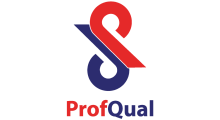The Professional Diploma in Healthcare Management (PDHM) is designed to provide comprehensive knowledge and strategic insights into the healthcare industry. This program focuses on equipping healthcare professionals, administrators, and policymakers with essential skills in healthcare management, policy-making, health economics, and global health governance.
Participants will develop expertise in managing healthcare facilities, enhancing patient care, understanding health policies and advocacy, improving healthcare systems, and addressing global health challenges. The course will also focus on health informatics, disaster preparedness, nutrition, and environmental health to create a well-rounded healthcare management professional.










